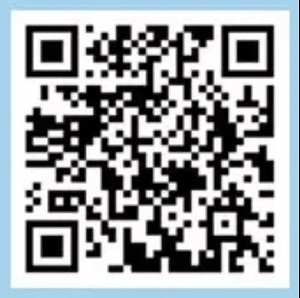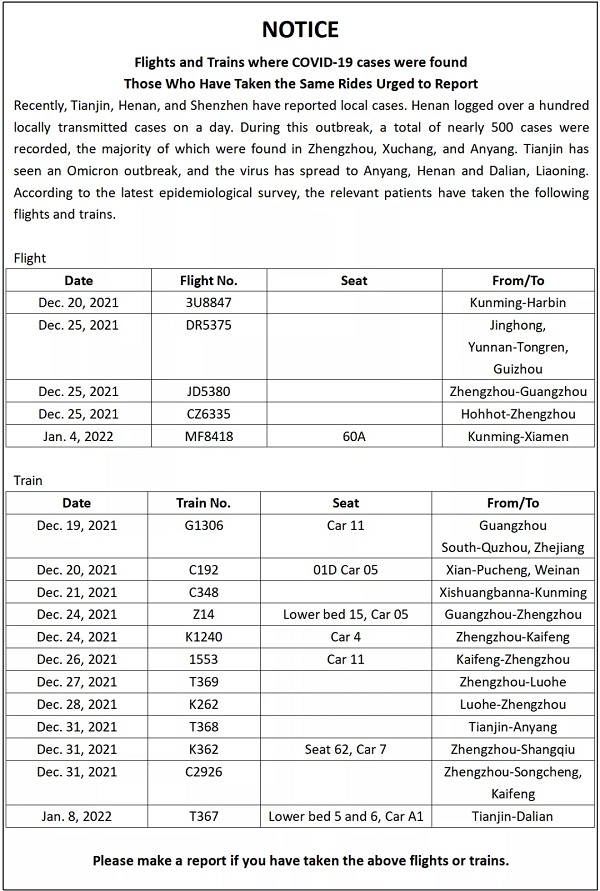Important information for inbound travelers to Guangzhou
I. Travelers from overseas (whose destination is Guangzhou)
1. Those entering China via Guangzhou
"14+7+7", i.e. 14-day centralized quarantine + seven-day home quarantine + seven-day self-health monitoring.
2. Those entering China through cities other than Guangzhou
"7+7", i.e. seven-day home quarantine + seven-day self-health monitoring in Guangzhou after the completion of centralized quarantine at the city of entry.
Ⅱ. Travelers from regions with local cases or outside Guangdong
1. Those who have visited any high-risk areas (or any area subject to the same management methods as high-risk areas) in the past 14 days shall undergo 14-day centralized quarantine and take a COVID test on the 1st, 4th, 7th, 10th, and 14th days.
2. Those who have visited any county (city or district; or street of a centrally-administrated municipality) where a high-risk area (or any area subject to the same management methods as high-risk areas) is located in the past 14 days shall undergo 14-day home quarantine, and take a COVID test on the 1st, 4th, 7th, 10th, and 14th days.
3. Those who have visited any city (league, prefecture, or district of a centrally-administrated municipality) where a high-risk area (or any area subject to the same management methods as high-risk areas) is located in the past 14 days shall undergo seven-day home quarantine and seven-day home health monitoring, and take a COVID test on the 1st, 3rd, 7th, and 14th days.
4. Those who have visited any middle-risk area (or any area subject to the same management methods as middle-risk areas) in the past 14 days shall undergo 14-day home quarantine, and take a COVID test on the 1st, 4th, 7th, 10th, and 14th days.
5. Those who have visited any city (league, prefecture, or district of a centrally-administrated municipality) with reported local cases in the past 14 days shall undergo 14-day home health monitoring, and take a COVID test on the 1st, 3rd, 7th, and 14th days.
6. Those who have visited any port city (excluding those connected to ports in Hong Kong or Macao) without any reported local case in the past 14 days shall practice "four ones" health management and 14-day self-health monitoring.
7. Those who have visited other provinces (autonomous regions or centrally-administrated municipalities) with reported local cases in the past 14 days shall take a test at the airport or train station upon arrival or at a nearby testing site within 24 hours, and undergo 14-day self-health monitoring. Those who have visited other provinces (autonomous regions or centrally-administrated municipalities) in the past 14 days shall take a test within 48 hours upon their arrival in Guangzhou.
8. Citizens shall stay updated with the epidemic dynamics in China. If you have been to any places that have been visited by any COVID-19 patient or have traveled outside of Guangdong or to any regions with reported local cases in the past 14 days, you must report the relevant information to your community (village) committee or residential community, employer, or hotel within 12 hours upon arrival to Guangzhou and cooperate with the required health management measures.
Notes:
The health management period shall start from the time of departure from the city, league, prefecture, or district of a centrally-administrated municipality.
Those who are not qualified for home quarantine shall be subject to centralized quarantine at a designated site.

Scan the QR code for more information on home quarantine, home health monitoring, and "four ones" health management. [Photo/WeChat account: GZWS411665430]
Guangzhou authorities will make real-time adjustments on the control measures based on the latest COVID-19 dynamics and risk assessment and will upgrade control measures for passengers from COVID-hit regions when necessary.
Any upgraded control measures will take effect on the same day of issue.
List of port cities:
According to the data issued by seven provinces, the port cities in China include 36 cities (prefectures), and 68 counties (districts) (including the seven counties of Heilongjiang).
1. Eight cities in Xinjiang Uygur autonomous region:
- Hami
- Changji Hui autonomous prefecture
- Altay prefecture
- Tacheng prefecture
- Bortala Mongol autonomous prefecture
- Ili Kazakh autonomous prefecture
- Kizilsu Kirghiz autonomous prefecture
- Kashgar prefecture
2. Eight cities in Yunnan:
- Baoshan
- Dehong Dai and Jingpo autonomous prefecture
- Lincang
- Xishuangbanna Dai autonomous prefecture
- Puer
- Honghe Hani and Yi autonomous prefecture
- Wenshan Zhuang and Miao autonomous prefecture
- Nujiang Lisu autonomous prefecture
3. Eight cities in Heilongjiang:
- Mudanjiang
- Jixi
- Shuangyashan
- Kiamusze
- Hegang
- Heihe
- Yichun
- The Greater Khingan Mountains area
4. Six cities in Neimenggu autonomous region:
- Hulunbeier
- Xingan League
- Xilin Gol League
- Baotou
- Bayan Nur
- The Alxa League
5. Three cities in Guangxi Zhuang autonomous region: Baise, Chongzuo, and Fangchenggang
6. Two cities in Tibet autonomous Region: The Ngari prefecture and Shigatse
7. One city in Jilin: The Yanbian Korean autonomous prefecture
The Guangzhou CDC urges passengers who have taken this train to make a report.
Positive COVID-19 cases were found on the following flights and trains. Please make a report if you have taken any of these rides.
Tianjin has recently seen an Omicron outbreak, and the virus has spread outside the city. According to the latest epidemiological survey, the relevant patients have taken the following flights and trains.

The management of inbound travelers to Guangzhou shall strictly follow the Notice on Strengthening COVID-19 Measures in Guangzhou (No 28).
Those who experience fever, dry cough, fatigue, decreased sense of smell and taste, nasal congestion, runny nose, sore throat, conjunctivitis, myalgia, diarrhea, etc. shall report to their community (village) committees, employers, or hotels immediately and go to a nearby fever clinic. They must truthfully inform their healthcare workers of their travel history. In such cases, public transportation should be avoided.
Residents should strengthen personal protection, wear masks correctly, practice good hygiene habits, and refrain from touching their eyes, mouth, and nose before cleaning their hands. Avoid going to crowded, enclosed, and poorly ventilated spaces. Those planning to go to indoor entertainment, recreational venues, and travel attractions should make an appointment in advance, take temperature checks, present health codes, scan the QR code of the venue for track and trace, keep a distance of 1 meter from each other, and reduce the length of stay.
Please answer the call from the contact tracers, but be mindful they will never ask you the seven things shown below.
Seven things that a contact tracer will:
- Never ask about your properties and other questions unrelated to the virus spread;
- Never ask you to scan a QR code for any reason;
- Never ask for your bank card number, password, or verification code;
- Never ask you to click on a link for any purpose;
- Never sell any products or requiring you to pay for whatever reason;
- Never ask you to join any groups on QQ or WeChat;
- Never ask you to make any money transfer or conduct a so-called "financial check".
What is an epidemiological survey?
An epidemiological survey, namely case investigation and contact tracing, is a process of investigating the places you have visited, the people and things you have been exposed to during a certain important period, and whether you have the risk of spreading the virus or getting infected.
Through such investigations, we will be able to identify close and secondary contacts of a COVID-19 patient and clarify the transmission chain. This will help find out the major cause of the outbreak and carry out targeted measures to stop the spread.
Why do we need epidemiological surveys?
Epidemiological surveys are a key strategy for preventing the spread of an infectious virus. Essential functions of epidemiological surveys include:
- Tracing the travel history of an infection source (patient);
- Identifying possible transmission areas and providing a basis for designating risk areas;
- Tracking close contacts and screening for high-risk groups;
- Serving as the fundamental basis for risk assessment and epidemic control policy making.
Who are subject to epidemiological surveys?
- Probable cases;
- Diagnosed cases;
- Asymptomatic cases;
- People who have been exposed to the virus, through close contact with any of the above cases or exposure to any possibly tainted environment.
What does an epidemiological survey include?
- Personal information:
Your name, age, home address, family members, current location, etc.
- Health condition:
Illnesses, hospital visits, abnormalities such as fever and cough, COVID-19 tests, etc.
- Travel history in a COVID-hit region:
Have you ever traveled to or stopped by any COVID-hit region; if you do, where have you visited?
- Residential history in a COVID-hit region:
Where is your hometown? Have you visited there recently?
- Close contact history:
Having been on the same ride, having had a face-to-face talk, living, working, studying, or having been around with a COVID patient.
- Transportation:
Have you ever taken any flight, train, bus, ferry, etc.?
- Other essential information:
Useful information for epidemic control and prevention.
What should you do when you receive a call from a contact tracer?
1. Stay calm. Being involved in the investigation does not necessarily mean that you are infected.
2. When you are contacted by a contact tracer by door-to-door visit, phone, or WeChat, please cooperate with the survey and answer the questions honestly.
Only authentic and effective information can help conduct a scientific assessment on the COVID-19 dynamics and adopt reasonable safety measures.
Anyone who refuses to cooperate, withholds information on purpose, and therefore causes the spread of the virus will be punished according to laws and regulations.
Will personal privacy be protected during the epidemiological survey?
Of course! During the epidemiological investigation, citizens' personal information and privacy are protected by law. All data collected thereof will be strictly kept confidential.
